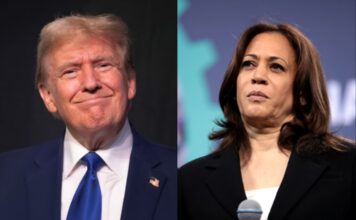Instead of giving 34,000 workers pay increases, the Regents opposed shifting 43 DEI jobs to help all students.
Nine Tony Evers appointees on the UW System’s Board of Regents just screwed over 34,000 state workers and countless Wisconsin high school students who want to get into University of Wisconsin schools, sacrificing their interests to stop 43 diversity, equity, and inclusion positions from being shifted toward overall student success efforts.
The UW System Board of Regents, in a 9-8 decision on Saturday, killed a compromise plan that would have provided $800 million in funding to the UW System, including $32 million for workforce development programs to help students get jobs, a new engineering building at UW-Madison desired by industry, and pay raises for the 34,000 state workers (more than 5,200 of them people of color).
The regents were incensed by the portion of the plan that would freeze DEI positions, including vacancies and shift 43 of them, about a third, to academic and student success. According to the Daily Cardinal, there are 130 DEI positions in the UW System.
In response, Evers released a statement saying he supported the vote. Essentially, the Regents voted to partially defund the University of Wisconsin campuses, rejecting a compromise plan crafted between Republicans in the Legislature and UW System leaders.
FORMER DEM POLITICIAN: This is UW Regent Dana Wachs, a Tony Evers' appointee who voted to kill $800m in funding to UW, pay raises for 34,000 workers, and a new engineering building in order to save 43 DEI positions.
Wachs' bio per the Regents' website:
-Personal injury and… pic.twitter.com/sAdHPndI7m
— Wisconsin Right Now (@wisconsin_now) December 10, 2023
The compromise plan would have supported legislative efforts to ensure a spot in UW for top Wisconsin high school students, who are sometimes rejected in favor of out-of-state and out-of-country students who bring in more tuition dollars. In 2021, for example, UW-Madison revealed that only 45.6 percent of incoming freshman students were from Wisconsin.
In a statement, Evers wrote that he believed the Regents voted “their values, and I understand and support their decision and vote.” He then bizarrely demanded that legislative Republicans work to “find common ground,” in the same statement in which the governor supported a vote to kill a plan that did just that.
Republican Congressman Bryan Steil responded, “This misguided decision is beyond insulting. Gov Evers appointed board would rather hire more DEI employees than have a new Engineering building and pay raises for its employees. Wildly misplaced priorities.”
WEALTHY ANIMAL WELFARE PHILANTHROPIST: This is UW Regent Karen Walsh, a Tony Evers' appointee who voted to kill $800m in funding to UW, pay raises for 34,000 workers, and a new engineering building in order to save 43 DEI positions.
Walsh's bio, per Regents' website:
-Runs… pic.twitter.com/kofZDz06Ec
— Wisconsin Right Now (@wisconsin_now) December 10, 2023
Democratic Congressman Mark Pocan applauded the Regents’ decision, calling the compromise plan “extortion.”
As part of the vote, Evers’ appointees also essentially killed the Winther/Heide Hall project at UW-Whitewater, which would have renovated an aging building by, among other things, providing accessible restrooms.
This is UW Regent Joan Prince, a Tony Evers' appointee who voted to kill $800m in funding to UW, pay raises for 34,000 workers, and a new engineering building in order to save 43 DEI positions.
Her bio, per Regents' website:
-president of a global consulting firm "that works… pic.twitter.com/o1AjFq4Z31— Wisconsin Right Now (@wisconsin_now) December 10, 2023
“It’s a shame they’ve denied employees their raises and the almost 1b investment that would have been made in the UW System all so they could continue their ideological campaign to force students to believe only one viewpoint is acceptable on campus,” Assembly Speaker Robin Vos said, indicating that he is done negotiating.
This is UW Regent Angela Adams, a Tony Evers' appointee who voted to kill $800m in funding to UW, pay raises for 34,000 workers, and a new engineering building in order to save 43 DEI positions.
Her bio, per the Regents' website:
-Goodwill executive and diversity officer (past)… pic.twitter.com/FfcdSu6lKY— Wisconsin Right Now (@wisconsin_now) December 10, 2023
All nine who voted against the compromise are Evers’ appointees. Of the eight who didn’t, three are Scott Walker-appointees, and one is the WCTS board representative.
Voting to kill the pay raises and funding were: Angela Adams, Amy Blumenfelt Bogost, Evan Brenkus, Edmund Manydeeds III, John W. Miller, Joan Prince, Jennifer Staton, Dana Wachs, and Karen Walsh.
Few of the regents have backgrounds working in higher education. Adams worked as a diversity officer for Goodwill; Bogost is a criminal defense and civil rights lawyer who focuses on Title IX cases; Brenkus is a student at the University of Wisconsin-Green Bay; Manydeeds is an attorney; Miller is the founder of a venture capital firm; Prince was formerly vice chancellor of global inclusion and engagement at UW-Milwaukee and a Barack Obama appointee to the UN General Assembly; Staton is a student at the University of Wisconsin-Parkside; Wachs is a civil lawyer and former Democratic legislator; and Walsh is director of a family foundation dedicated to human and animal health and welfare. Several are major Democratic donors, including to Tony Evers.
MAJOR DEM DONOR: This is UW Regent John W. Miller, a Tony Evers' appointee who voted to kill $800m in funding to UW, pay raises for 34,000 workers, and a new engineering building in order to save 43 DEI positions.
Miller bio from Regent website:
-founder of Arenberg Holdings,… pic.twitter.com/H2zxDZ53Iw
— Wisconsin Right Now (@wisconsin_now) December 10, 2023
Voting for the compromise: Robert Atwell, Hector Colon, Mike Jones, Jim Kreuser, Cris Peterson, Ashok Rai, Mark Tyler, and Kyle M. Weatherly.
Colon, an Evers’ appointee who voted for the compromise plan, said the pay raises would affect “the livelihoods of employees and their families, including those from underrepresented groups.” He also focused on the workforce development funding, saying that it would help produce “individuals from diverse backgrounds in health care, engineering, and technology.”
Regents who voted to kill the plan cited their support for diversity, equity, and inclusion (DEI) efforts. For example, Regent Evan Brenkus said the compromise plan was “selling our minorities out for millions of dollars.”
Representative Robyn Vining, a Democrat, tweeted before the vote, “LEGISLATIVE DEMOCRATS ARE UNITED OPPOSING THIS TERRIBLE AGREEMENT. All of us. Every single one. DEI is non-negotiable. Hear us loud and clear.”
Democrats gloated about the Regents’ action. “ORGANIZING WORKS,” wrote Democratic Rep. Lee Snodgrass. Democratic state Rep. Francesa Hong wrote, “Student voices and community comments are powerful. Organizing fucking works.”
LEGISLATIVE DEMOCRATS ARE UNITED OPPOSING THIS TERRIBLE AGREEMENT. All of us. Every single one.
DEI is non-negotiable. Hear us loud and clear.
And share your voice ahead of the 10:10am Board of Regents vote today. https://t.co/ifBb2Jmr6F
— Representative Robyn Vining (@RepRobynVining) December 9, 2023
“Republicans worked to find a compromise to provide hundreds of millions of dollars in funding for UW pay raises, capital projects, and workforce development. The Evers-controlled Board of Regents blew up the deal because Democrats care more about 43 DEI positions than education,” state Sen. Duey Stroebel, a Republican, wrote.
Jay Rothman, the UW System president, wrote, “On balance, I believe this proposed agreement was in the best interests of the Universities of Wisconsin. While I am disappointed, I respect the decision of the Board of Regents.
The UW employees who won’t get raises as a result of the Regents’ action include such working and middle-class workers as campus cops, janitors, food-service workers, IT workers, librarians, instructional academic staff, and others who have no power to approve DEI spending, as power in the UW is concentrated only among tenured professors with PHDs.
STUDENT MEMBER: This is UW Regent Jennifer Staton, a Tony Evers' appointee who voted to kill $800m in funding to UW, pay raises for 34,000 workers, and a new engineering building in order to save 43 DEI positions.
Her bio, per Regents' website:
-Current student at the… pic.twitter.com/MJHM1A1IOd
— Wisconsin Right Now (@wisconsin_now) December 10, 2023
In exchange for 34,000 workers’ salary increases, the Regents sided with preserving 43 DEI jobs which, under the compromise plan, would have been shifted toward academic and student success or not filled.
The plan killed by the Evers’ appointed Regents would have done the following.
1. The System would support the adoption of a state law mandating that UW-Madison admit the top 5% of academic performers in all Wisconsin high schools and that the other UW schools guarantee to take the top 10%. In addition, the top-performing home-schooled and online students would be guaranteed admission, as would National Merit Finalists.
This is UW Regent Amy Blumenfeld Bogost, a Tony Evers' appointee who voted to kill $800m in funding to UW, pay raises for 34,000 workers, and a new engineering building in order to save 43 DEI positions.
Bio (from Regents' website)
-Criminal defense and civil rights lawyer… pic.twitter.com/xc1MvL7IUy
— Wisconsin Right Now (@wisconsin_now) December 10, 2023
2. The deal would have required a key legislative committee to approve the pay plan and the trades contracts for System and UW-Madison employees (34,000 people).
3. The deal would have required a key legislative committee to approve “a supplemental appropriation of $32 million for workforce development.”
4. The plan would include legislative funding for the proposed new engineering building at UW-Madison.
5. The plan would include legislative funding for the Winther/Heide Hall project at UW-Whitewater.
6. The plan would include funding an extension of Minnesota-Wisconsin reciprocity.
7. The plan would include funding for the Kronshage-Jorns-Humphrey Resident Halls renovation project at UW-Madison.
8. The Legislature would have approved $45.4 million in one-time GPR funding “to be used by various universities to demolish unused and/or uninhabitable facilities on System campuses.”
9. The plan would include funding for the System’s utility projects “substantially on the terms as set forth in the System’s original budget request.”
10. The plan would have required the UW to not grow non-teaching positions and bureaucracies, mandating that the campuses maintain current staffing levels except for faculty and instructional staff who teach students or receive grant-funded research. (A recent investigation by College Fix found that the University of Wisconsin Madison “employs roughly one administrator for every four undergraduates, and has grown its administration and support staff by 23 percent since 2013.”) This provision in the compromise deal was designed to make sure administrative bloat wanes while resources are directed into classroom teaching, where they help students. The plan also called for the system to freeze DEI positions.
This is UW Regent Evan Brenkus, a Tony Evers' appointee who voted to kill $800m in funding to UW, pay raises for 34,000 workers, and a new engineering building in order to save 43 DEI positions.
His bio (per Regents' website):
-Student at UW-Green Bay pursuing major in First… pic.twitter.com/JDN3XhvPau
— Wisconsin Right Now (@wisconsin_now) December 10, 2023
11. UW-Madison was to seek donor support to create “an endowed chair to focus on conservative political thought, classical economic theory, or classical liberalism.”
12. UW-Madison was to discontinue a “Target of Opportunity” program seeking “underrepresented populations” (i.e. racially diverse hires) and was instead to initiate a program for recruiting faculty who “regardless of their identity or ethnic/racial background” have “demonstrated the ability to mentor ‘at risk’ and/or underrepresented students to achieve academic success and who have demonstrated academic and research excellence.”
13. The System was to eliminate diversity statement requirements in admissions applications.
14. The System was to develop “a module regarding freedom of expression for entering undergraduate students.”



![Was Kamala Harris the ‘Border Czar’? [FACT CHECK] kamala harris](https://www.wisconsinrightnow.com/wp-content/uploads/2024/07/MixCollage-25-Jul-2024-12-55-AM-6531-356x220.jpg)

![Wauwatosa Spends $368,000 on Large Park TROLL by Danish Artist [EXCLUSIVE] wauwatosa troll](https://www.wisconsinrightnow.com/wp-content/uploads/2024/07/MixCollage-22-Jul-2024-02-47-PM-1268-356x220.jpg)










